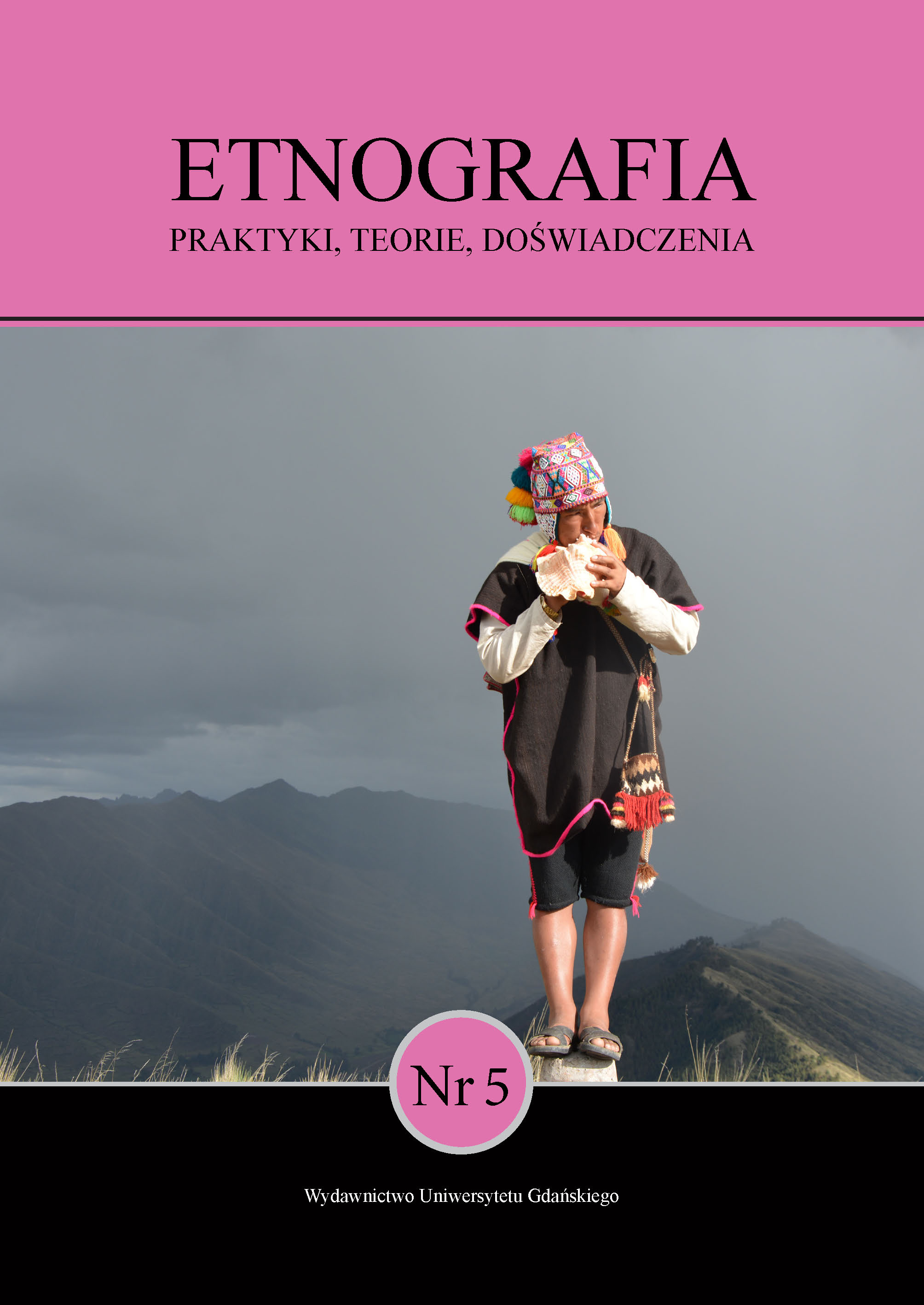Thumbelinas . Turner syndrome and its social constructions
DOI:
https://doi.org/10.26881/etno.2019.5.06Keywords:
Turner syndrome, teenagers, biomedicine, medicalization, bodily normativityAbstract
Turner syndrome (TS) is a chromosomal abnormality that affects exclusively girls and always results in a short stature . This article is based on an ethnographic research whose main objective was to look into the narratives and daily practices of Polish girls diagnosed with TS . The article describes strategies adopted towards the bodily manifes- tations of TS in everyday life of Polish teenagers diagnosed with this condition . In this paper, I explore the meanings and practices around normalization of Turner Syndrome which are being negotiated in the process of socialization of children with TS .
Downloads
References
Bartky, S.L. (2007). Foucault, kobiecość i unowocześnienie władzy patriarchalnej. W:R.E. Hryciuk, A. Kościańska (red.), Gender. Perspektywa antropologiczna (s. 68). Warszawa: Wydawnictwa Uniwersytetu Warszawskiego.
Becker, K.L. (2001). Principles and Practice of Endocrinology and Metabolism. Filadelfia: Lippincott Williams and Wilkins.
Fryns, J.P., Kleczkowska, A., Van Der Berghe, H. (1990). High incidence of mental retardation in Turner syndrome patients with ring chromosome X formation. Journal of Genetic Counseling, 1(2), 161–165.
Ihde, D. (2002). Bodies in technology. Minneapolis: University of Minnesota Press, 137.
Krawczak, A. (2017). Notatki terenowe. Badania w czasie kolonii letnich w latach 2016–2019. Archiwum Interdyscyplinarnego Zespołu Badań nad Dzieciństwem, Warszawa: Instytut Etnologii i Antropologii Kulturowej UW.
Marcus, G.M. (1995). Ethnography in/of the World System: The Emergence of Multi-Sited Ethnography. Annual Review of Anthropology, 24, 95–117.
Radkowska-Walkowicz, M. (2017). Notatki terenowe. Badania na Oddziale Endokrynologicznym Szpitala Warszawskiego Uniwersytetu Medycznego. Archiwum Interdyscyplinarnego Zespołu Badań nad Dzieciństwem, Warszawa: Instytut Etnologii i Antropologii Kulturowej UW.
Rajtar, M. (2019). Bioetyka i technologie wzmacniania ludzkiego ciała w kontekście doświadczeń kobiet z zespołem Turnera. W: E. Maciejewska-Mroczek, M. Radkowska-Walkowicz, M. Reimann (red.), Zespół Turnera. Głosy i doświadczenia (s. 171–197). Warszawa: Oficyna Naukowa.
Shildrick, M. (2015). “Why should our bodies end at the skin?”: Embodiment, boundaries and somatechnics. Hypatia, A Journal of Feminists Philosophy, Disability Special Issue, 30(1), 13–29.
Świątkiewicz-Mośny, M. (2010). Tożsamość napiętnowana. Socjologiczne studium mechanizmów stygmatyzacji i autostygmatyzacji na przykładzie kobiet z zespołem Turnera. Kraków: Nomos.
Downloads
Published
How to Cite
Issue
Section
License
Czasopismo wydawane jest na licencji Creative Commons Uznanie autorstwa-Na tych samych warunkach 4.0 Międzynarodowe.

 Academic Scientific Journals
Academic Scientific Journals








